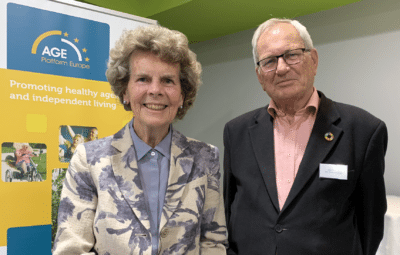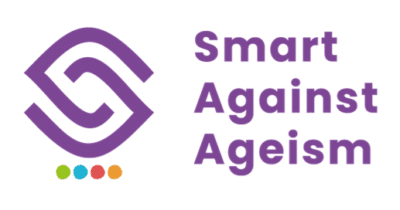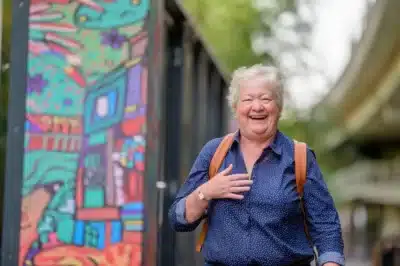Age Equality
We fight for equal rights at all ages. We want to ensure that people, no matter their age, can live in dignity. Our work on age equality uses human rights principles and norms to challenge the practices that keep us from living fairly and freely as equals when we are old.

The context
Ageism prevents us from living to our full potential and may even affect our health, wellbeing, and life expectancy. For example, due to age limits we may find ourselves excluded from health treatment, insurance, banking products, training and social support, to name just a few. Ageist prejudices also drive other human rights violations, including poverty, neglect and abuse.
What is ageism?
Ageism refers to stereotypes (how we think), prejudice (how we feel) and discrimination (how we act) towards people on the basis of their age. Institutional ageism refers to the laws, rules, social norms, policies and practices of institutions that unfairly restrict opportunities and systematically disadvantage individuals because of their age. Interpersonal ageism arises in interactions between two or more individuals, while self-directed ageism occurs when ageism is internalised and turned against oneself.
Source: Global Report on Ageism (WHO, 2021)
We all age differently and some of us face combined forms of inequalities based on our age but also gender, ethnic origin, disability, socio-economic status, sexual orientation, and others.
“A human rights-based approach is the most appropriate and effective framework to challenge ageism”
(Report on Ageism and Age Discrimination A/HRC/48/53, 2021)UN Independent Expert on the Enjoyment of all Human Rights by Older Persons
Our key message
We aim to change the laws and policies at national, European and international level to ensure they adequately prevent and address all forms of discrimination and rights violations in old age. We strive to increase awareness of how ageism affects our lives and our communities and advocate for policies to mainstream age equality.
We seek to:
- Ensure the adoption of an EU Age Equality Strategy
- Raise awareness of ageism as a serious and harmful form of discrimination that creates barriers to equality, freedom and participation
- Empower individuals and advocacy groups to fight for equal rights in all ages
- Ensure that EU policies adopt a rights-based approach to ageing
- Extend legal protection from age discrimination at EU level beyond the field of employment
- Advocate for a new UN convention to protect our rights in old age
- Promote understanding of the diversity of the older population and the multiple forms of discrimination faced by groups, such as older women, older Roma people, older LGBTI people and older persons with disabilities.
Some Figures
is the age when we start developing ageist stereotypes and beliefs.
worldwide (1 in 2 people) are ageist against older people. (Global Report on Ageism, 2021)
perceive discrimination due to old age (over 55) as “very” or “fairly” widespread in their country.
(Eurobarometer, 2015)
we gain on average by holding positive attitudes towards older age.
(Becca Levy et al, 2002 )
Useful links
Key AGE resources on Age Equality
European Union
United Nations
Council of Europe
Civil Society
Contact


Related news
On 11 July, together with more than 140 civil society organisations, AGE sent a joint statement to newly established EU...
At the conference ‘Building Together the EU We Want’, civil society organisations discussed the EU they want and proposed priorities...
Our positions
Related projects
Other resources
This recent report by the Commissioner for Older People for Northern Ireland (COPNI) details findings on ageism from extensive consultations...
In 2015, the world reaffirmed its commitment to sustainable development by endorsing the 2030 Agenda for Sustainable Development and its...
Read our December newsletter Six months before the votes for a new European Parliament, we want to recall the importance...
Get involved
Together we can make a difference towards more age equality in Europe. Let’s join our forces!















